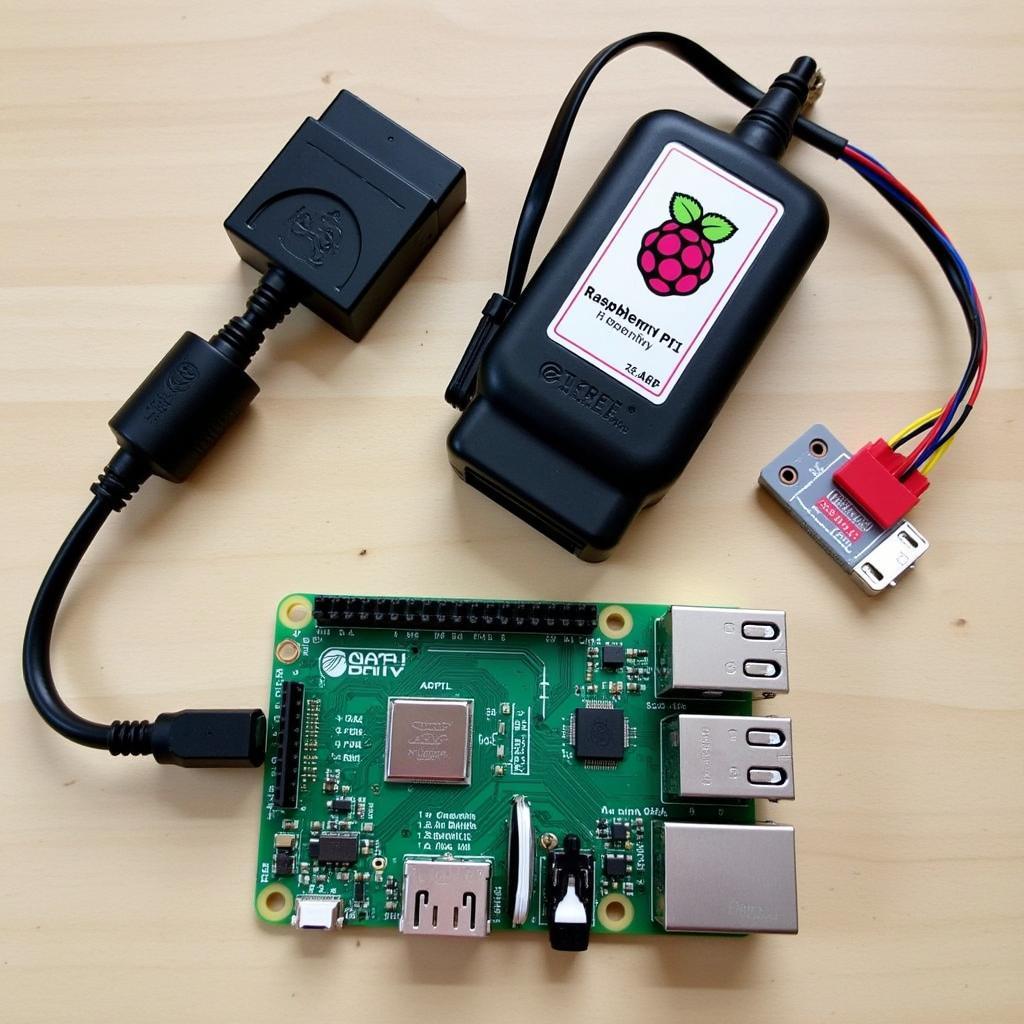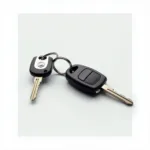Raspberry Pi car diagnostic tools are revolutionizing how we understand and maintain our vehicles. These compact, affordable devices offer a powerful alternative to expensive professional diagnostic scanners, empowering car owners and hobbyists alike to delve into their car’s inner workings. Whether you’re a seasoned mechanic or a curious car enthusiast, harnessing the power of a Raspberry Pi for car diagnostics can unlock a new level of control and understanding over your vehicle’s health.
Understanding Raspberry Pi Car Diagnostics
What exactly can you do with a Raspberry Pi for car diagnostics? These versatile devices can access and interpret the data transmitted by your car’s onboard diagnostic system (OBD-II port). This data provides valuable insights into your vehicle’s performance, allowing you to identify potential problems before they become major headaches. From reading and clearing diagnostic trouble codes (DTCs) to monitoring real-time sensor data like engine temperature, speed, and fuel consumption, the possibilities are vast. A Raspberry Pi paired with the right software and hardware can even perform advanced functions like data logging and performance tuning.
Choosing the Right Hardware and Software
Setting up your Raspberry Pi for car diagnostics involves selecting compatible hardware and software. You’ll need a Raspberry Pi (any model will do, but a Raspberry Pi 4 is recommended for its processing power), an OBD-II adapter cable to connect to your car’s diagnostic port, and a stable power supply. On the software side, several open-source and commercial options are available. Popular choices include OBD-Pi, which provides a user-friendly interface for reading and clearing DTCs, and GUIZero, a Python library that simplifies the creation of custom diagnostic dashboards.
Benefits of Using Raspberry Pi for Car Diagnostics
Why choose a Raspberry Pi over traditional OBD-II scanners? Affordability is a key factor. Raspberry Pi-based solutions are significantly cheaper than professional-grade scanners, making them accessible to a wider audience. Furthermore, the open-source nature of many Raspberry Pi diagnostic tools allows for customization and flexibility. You can tailor the software to your specific needs, creating a personalized diagnostic experience. Finally, the learning potential is immense. Using a Raspberry Pi for car diagnostics is a fantastic way to gain a deeper understanding of automotive technology.
Troubleshooting Common Car Issues with a Raspberry Pi
From diagnosing a check engine light to monitoring fuel efficiency, a Raspberry Pi can be a valuable tool for troubleshooting a wide range of car issues. Imagine being able to identify a faulty oxygen sensor before it leads to further engine problems, or tracking your fuel consumption to optimize your driving habits. These are just a few examples of how Raspberry Pi car diagnostics can empower you to take control of your vehicle’s maintenance.
Advanced Applications of Raspberry Pi Car Diagnostics
Beyond basic diagnostics, a Raspberry Pi can be used for more advanced applications like data logging and performance tuning. By recording sensor data over time, you can gain valuable insights into your car’s performance under various driving conditions. This data can be used to identify trends, optimize fuel efficiency, and even diagnose intermittent problems that might be difficult to detect otherwise. Furthermore, with the right software and hardware, a Raspberry Pi can be used to adjust certain engine parameters, allowing for fine-tuning of performance.
“The versatility of the Raspberry Pi is what makes it such a powerful tool for car diagnostics,” says Dr. Emily Carter, Automotive Engineer at CarTech Innovations. “From simple code reading to complex data analysis, the possibilities are truly endless.”
Building Your Own Car Diagnostic System
While pre-built Raspberry Pi diagnostic kits are available, building your own system from scratch can be a rewarding experience. It allows you to tailor the hardware and software to your specific needs and learn more about the underlying technology. Numerous online resources and tutorials provide step-by-step guidance on building your own Raspberry Pi car diagnostic system.
 DIY Raspberry Pi Car Diagnostic Setup
DIY Raspberry Pi Car Diagnostic Setup
Conclusion: Embracing the Future of Car Diagnostics with Raspberry Pi
Raspberry Pi car diagnostic tools represent a powerful and affordable solution for anyone interested in understanding and maintaining their vehicle. From reading and clearing DTCs to advanced data logging and performance tuning, the versatility of the Raspberry Pi unlocks a new level of control and insight into your car’s health. Embrace the future of car diagnostics and empower yourself with the knowledge and tools to keep your car running smoothly.
FAQ
- What is the cost of setting up a Raspberry Pi for car diagnostics?
- Can a Raspberry Pi diagnose all car problems?
- Which Raspberry Pi model is best for car diagnostics?
- Is it difficult to set up a Raspberry Pi for car diagnostics?
- What software is available for Raspberry Pi car diagnostics?
- Can I use a Raspberry Pi for diagnostics on older cars?
- Are there any safety concerns when using a Raspberry Pi for car diagnostics?
“Using a Raspberry Pi for car diagnostics is not only cost-effective but also a fantastic learning opportunity,” adds Michael Davis, Lead Mechanic at Auto Solutions Inc. “It empowers car owners to take a proactive approach to vehicle maintenance.”
For any assistance or further inquiries, feel free to reach out to us via WhatsApp: +1(641)206-8880, or Email: [email protected]. We have a dedicated customer support team available 24/7.


